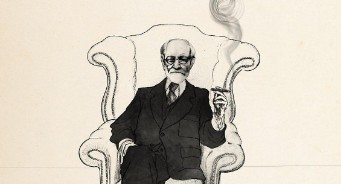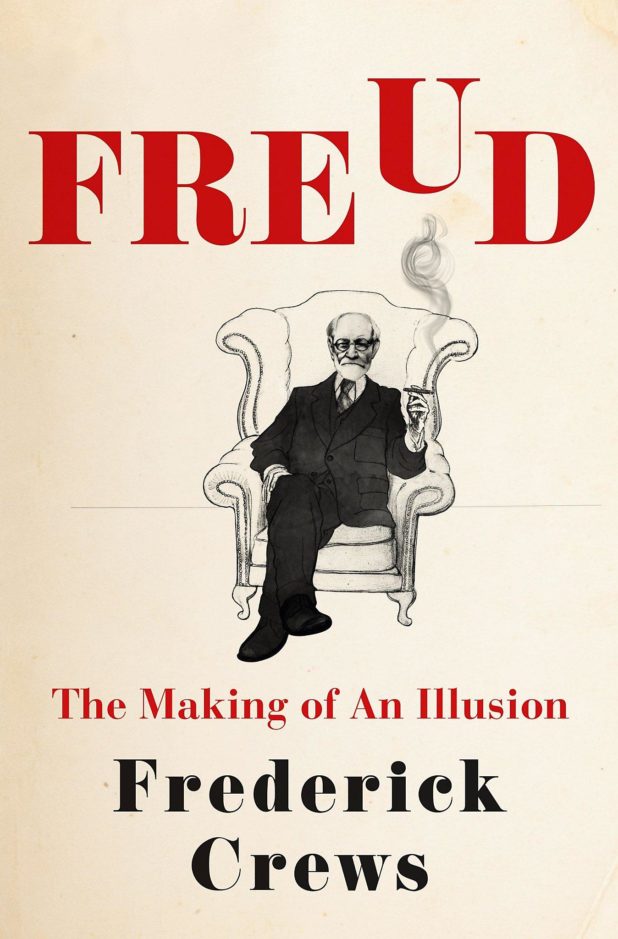Diversity Macht Frei
November 6, 2017
As I have contemplated the European Genocide over the years, the distinction between objective truth and the subjective realm of psychology and emotion has come to be one of the anchor points of my thought. It’s a conceptual tool for understanding what is happening to us, but also a definitional element of who we are, as Europeans.
The quest for knowledge, the passion for discovering objective truth, seems to me the most fundamental characteristic of Europeanness, one that we can already see apparent in the Ancient Greeks. Aristotle, for example, wrote a book that was just an objective description of all the animal species he knew about. No philosophy, nothing abstract. Just the facts. That’s Europeanness right there, thousands of years ago.
Ultimately, it was our civilisation’s passion for investigating objective truth through science that took it to global dominance. And it is our current fixation on the subjective – on psychology, emotion, motivation – that will be our downfall. Unless we can cure ourselves of it.
Rational debate about our future has become impossible due to the charges of impure motivation that are immediately flung at anyone who attempts to engage in it: racism, islamophobia, antisemitism, etc. Implicit in these charges is the idea that impure motivation invalidates everything a person says. The criterion of objective truth is disregarded.
We should never forget where this curious notion comes from: the Talmudic legal system and its obsession with the purity of a witness’s motivation.
The rules of evidence, as formulated in the Talmud, are of a remarkable character. They are in most respects unlike those of any ancient legal code ; and are diametrically opposed to our modern English practice in every important particular.
…
The credibility of witnesses must be established beyond doubt ; their impartiality must be placed above suspicion ; the likelihood of prejudice animating any person testifying against a prisoner must be carefully sought out. The admissibility of evidence was determined by a series of stringent regulations disqualifying in each case a number of individuals from coming forward as witnesses. No man could incriminate himself ; nor could a wife give evidence against a husband. (Among the Hebrews a betrothed girl was regarded by the law as a married woman.) On the other hand, a prisoner was not debarred from testifying in his own favour ; any argument he wished to urge, irrespective of its legal worth, was heard by the judges. Relatives — including many allied by marriage, and nearly all those allied by blood — were incompetent to appear as witnesses. Grandchildren formed, however, an exception to this rule. Those standing in loco parentis to the accused at the time the alleged offence was committed or when the trial commenced ; the shushbin — best man, groomsman — during the seven days of marriage ; an enemy, i.e. one who had not spoken to the prisoner for a period of three days, owing to dislike or hatred or on account of differences ; a creditor ; any person to whom the accused had lent money ; all who publicly and derisively — Ufrase — acted in contravention of the Mosaic laws regarding food, cleanliness, and decency ; all such as had been convicted of attempting to wrong or defraud a neighbour (the Talmud regards such persons as worse than those who sin against Heaven only) — these, and all others who were disqualified from acting as judges in a cause, were declared incompetent to appear as witnesses.
Source: The criminal code of the Jews, according to the Talmud Massecheth Synhedrin by Benny, Philip Berger
More generally, non-Europeans, have played a critical role in pushing the obsession with the subjective upon us. The Jewish pseudoscience of psycho-analysis cast a long shadow over the 20th century, one whose influence is still with us today even though its “science” aspect has now been utterly discredited.
A fascinating new book has recently been published about the creator of psycho-analysis, Schlomo Sigismund Freud (who used the name Sigmund Freud): Freud: The Making of An Illusion by Frederick Crews, Profile Books.
Freud’s acolytes even invented an equivalent of “racism, antisemitism, Islamophobia, etc.” for their own field: Freud-bashing.
Of course, hard-core partisans can be counted upon to dismiss this book as an extended exercise in Freud bashing—a notion that gets invoked whenever the psychoanalytic legend of lonely and heroic discovery is challenged. To call someone a Freud basher is at once to shield Freud’s theory from skeptical examination and to shift the focus, as Freud himself so often did, from objective issues to the supposedly twisted mind of the critic.
I intend to do a series of posts publishing extracts from this book. Let’s begin with his feelings about Gentiles and Jews and the fable of antisemitism he constructed.
In boyhood, Sigismund had idolized his father and associated him with the noblest Hebrews of the Bible. As his own dream of greatness took hold, however, disillusionment set in. Having grasped that parents can exercise a measure of choice regarding the size of their families, and finding himself required, vexatiously, to look after five young sisters and a final brother, the boy grew impatient with a father who had gone on engendering children while failing to provide for them. Moreover, Sigismund was shocked when Jacob, seeking to let him know how bad things had formerly been for Jews in Freiberg, confided that he hadn’t fought back against gentile bullying. After learning of such “unheroic” conduct, Sigismund compensated by fantasizing himself as Hannibal, the Semitic Carthaginian general whose father had made him swear to “take vengeance on the Romans”—metaphorically, on the established Roman Catholics of Austria.
Freud’s eventual doctrine would constitute a turning of the tables on the anti-Semites—a “transvaluation of values” that delegitimized the Christian dichotomy between spirit and sexual passion. But Freud couldn’t acknowledge that impetus without exposing the “science” of psychoanalysis as an ideological production. Consequently, anti-Semitism figured in his retrospect only as an obstacle to be negotiated in his path to discovery of universal psychological laws. From Freud’s account we could never suspect either that he retained a lifetime grudge against gentiles or that—as we will find—one strain of anti-Semitism affected his own apprehension of fellow Jews.
Freud later constructed a fantastical narrative of his struggle against antisemitism that had very little relationship to objective reality.
Looking backward in his Autobiographical Study of 1925, Freud maintained that his struggle with prejudice had already been fully engaged in his adolescence. “Anti-Semitic feelings among the other boys,” he wrote of his concluding school years, “warned me that I must take up a definite position…. And the increasing importance of the effects of the anti-Semitic movement upon our emotional life helped to fix the thoughts and feelings of those early days.” But a look at the record will show that until he was about nineteen and beginning medical school, he hadn’t expected to be handicapped by his ethnicity. We cannot doubt that Freud did experience some of the slights described in the Autobiographical Study. Even though, by the time of his graduation, Jews made up a full 73 percent of the Sperl Gymnasium’s pupils, that majority constituted no insurance against snubbing. The rapid increase in Jewish enrollment, from 68 to 300, during the years of Freud’s attendance was well suited to producing hostility from gentile teenagers who perceived “their school” as having fallen into alien hands. Nevertheless, the adolescent Freud didn’t regard prejudice as a credible threat to his advancement. A favorable sociopolitical climate encouraged him to believe that his opportunities would be almost limitless if he properly “Germanized” himself. This is not to say that his early fondness for Goethe, Schiller, and Heine was feigned. Rather, he saw no conflict between retaining his identity as a Jew and becoming culturally German. That Freud aimed at Germanization clearly indicated by his early decision to alter his given name. In either 1869 or 1870, no later than age fourteen, he began registering for his school courses not as Schlomo Sigismund but as Sigmund, and his early letters also show him experimenting with the new version before definitively adopting it in his signature.
Freud also said and wrote many things that today would be considered career-terminating expressions of antisemitism.
As early as 1872, for example, at age sixteen, Freud told Emil Fluss how repulsed he was by an encounter with a family on a train: Now, this Jew talked in the same way as I had heard thousands of others talk before, even in Freiberg. His very face seemed familiar—he was typical. So was the boy, with whom he discussed religion. He was cut from the cloth from which fate makes swindlers when the time is ripe: cunning, mendacious, kept by his adoring relatives in the belief that he is a great talent, but unprincipled and without character…. I have enough of this riffraff [Gesindel]. In the course of the conversation I learned that Madame Jewess and family hailed from Meseritsch: the proper compost-heap for this sort of weed.
This burst of venom was far from unique. In 1875, at age nineteen, Freud wrote to Silberstein about a new acquaintance who “is undoubtedly brilliant, but unfortunately a Polish Jew.” In 1878, at twenty-two, he told the same friend that he was appalled by the behavior of a “grobber Jüd”—a coarse Jew—at a dinner party. At age twenty-seven, in recounting a funeral to his fiancée, he characterized one speaker as a fanatic who manifested “the ardor of the savage, merciless Jew.” Further, at twenty-nine he told his fiancée that he had been disagreeably struck by the sight of “somewhat wretched Jewish faces” in a social gathering in Berlin. And in the same year he described an acquaintance as “a typical little Jew with sly features.”

